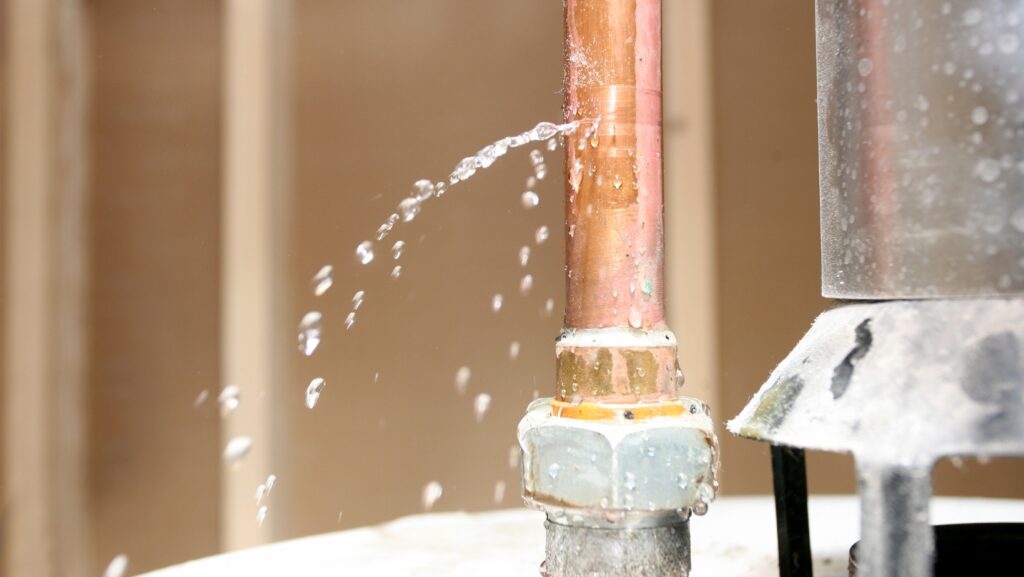
xr:d:DAF4HKOClDE:571,j:2260096407918560791,t:24011221
A homeowner would dread water leaks the most due to the extensive damage that they cause, as well as mold growth and costly repairs which may follow thereafter. Nevertheless, if you took precaution by knowing how to detect these leaks early enough then you would save yourself all this trouble plus lots of money that could otherwise be lost by having to deal with such a serious issue later on. The following tips will assist in identifying and fixing leakages regardless of whether one resides in McKinney,TX among other areas.
Be Aware of Your Water Usage
One of the easiest ways to detect a leak early on is to monitor your water usage. Signs that there might be a leak include a sudden increase in the amount of water used without any change made to how much you use or pay for; thus making bills to rise unexpectedly generally due to leaks occurring somewhere within your piping system whilst other situations lead to such losses too over certain durations thereby necessitating one’s close attention lest complications arise later on.
Check Your Water Meter
Your water meter is a valuable tool in leak detection. To check for leaks using your meter, first, make sure no water is being used in your home. Then, locate your water meter and take a reading. Wait for an hour or two without using any water and take another reading. If the numbers have changed, you likely have a leak somewhere in your system.
Look for Visible Signs of Leaks
Some leaks are easy to spot if you know what to look for. Regularly inspect your home for visible signs of water damage, such as:
– Damp or discolored spots on walls, ceilings, or floors
– Peeling paint or wallpaper
– Warped or buckled flooring
– Mold or mildew growth
– Wet spots in your yard or landscaping
Pay attention to any musty odors or the sound of running water when no faucets are in use, as these can also indicate a hidden leak.
Inspect Your Appliances
Leaking washing machines, dishwashers, ice-maker refrigerators and other similar machines can also create leaks that result into water wastage at home. Regularly check the hoses and connections on these appliances for signs of wear, kinks, or cracks. Replace any damaged hoses immediately to prevent leaks. If you notice water pooling around an appliance or if it’s not functioning properly, call a professional for repair.
Test Your Toilets
Toilet leaks can waste a significant amount of water and cause damage to your bathroom floor. To determine if your toilet is leaking, you should add a few drops of food coloring into the tank then wait for about 15-20 minutes. In case the dye would show up in the bowl withoutflushing, then your toilet has got a leaking problem. Common causes of toilet leaks include a faulty flapper valve or fill valve, which can usually be replaced easily.
Monitor Your Water Pressure
High water pressure can put a strain on your plumbing system, leading to leaks and pipe damage. Buy a water pressure gauge from a local hardware store and place it at your faucet. Fit the meter to an exterior spigot then open it. If the pressure reads above 60 psi, you may need to install a pressure reducer to protect your pipes.
Keep an Eye on Your Water Heater
Often times, old or neglected water heaters start leaking through cracks; thus, it is imperative for you to check your water heater routinely so as to detect signs of corrosion, rust, or water gathering at the bottom. Should there be any problems, always seek the help of experienced leak detection in McKinney, TX plumber to rectify the situation.
Inspect Your Roof and Gutters
Leaks don’t always originate from plumbing issues. Your home may suffer from leaks and other water damages when water manages to enter your house as a result of roof and gutter damages. Therefore, you need to check your roof for missing, damaged or curled shingles as often as possible. Check your gutters and downspouts for clogs, cracks, or sagging. Keep your gutters clean and ensure that water is draining away from your home’s foundation.
Know When to Call a Professional
Even though some water will escape through enclosed spaces, there are chemicals which may be used without consulting an outside plumber to prevent damage from bigger leaks. Some leaks can be repaired by simple do-it-yourself techniques, while others may need the service of a professional plumber. If you have a feeling that there is a leakage somewhere in your house, but you cannot find it yourself; do not try fixing it since this may only worsen the situation further; instead call for assistance from detection experts. They have the tools and knowledge to quickly find and fix leaks, minimizing damage to your home.
Invest in Leak Detection Technology
Technology has improved significantly and now there are many smart leak detection devices available. They will notify you whenever there is a leak in your house before it becomes dangerous because of too much water causing severe injuries or damages. In case of any leakages within your pipes, these gadgets use their sensors which remotely monitor water flow as well as electricity consumption levels then send notifications through Smartphone about such incidences occurring around them; other options also allow some models turn off running taps automatically including those connected directly with other appliances such as washing machines and dishwashers.
You can spare your house from the costly as well as draining consequences of water damage by applying the aforementioned early leak detection tips and keeping watch. Always keep in mind that spotting leaks at their initial stages is important as it reduces the need for constant mending.
FAQs:
- What are some common signs of a water leak?
There are several common occurrences that would indicate the presence of a leakage in the system through your water bill abruptly going up, soaked or stained areas in the walls or ceiling, the noise that water makes while being run yet no tap is open and finally any wet patches either at the garden or compound.
- How often should I check for leaks in my home?
It’s a good idea to perform a thorough leak inspection at least once a year, as well as any time you notice signs of a potential leak. Regularly monitoring your water usage and checking for visible signs of leaks can help you catch problems early.
- Can I fix a leak myself, or do I need to call a plumber?
The solution rests on where the leak happens and how serious it is apart from your Do It Yourself (DIY) proficiency. There are minor leakages like tap that drips or running toilets which can readily be mended easily. Nevertheless, when it comes to intricate leakages or those whose location is hard to detect then it is wise to hire an expert plumber so that no more harm can be done.
- What should I do if I suspect a leak but can’t find the source?
If you suspect a leak but can’t locate the source, it’s time to call in a professional leak detection service. These experts use specialized equipment, such as acoustic listening devices and infrared cameras, to pinpoint the exact location of the leak without causing damage to your property.
- Are there any steps I can take to prevent leaks in my home?
Yes! Regular maintenance of your plumbing system, appliances, and fixtures can help prevent leaks. This includes replacing worn hoses, fixing dripping faucets, and checking for signs of corrosion or damage. Installing leak detection devices and monitoring your water usage can also help you catch leaks early before they cause significant damage.




